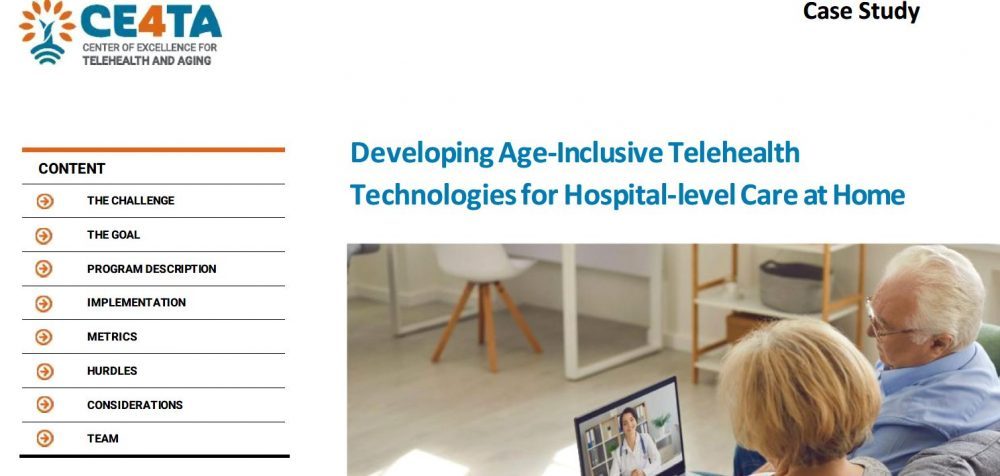This introductory course equips health care professionals with essential knowledge and strategies to deliver telehealth services that are person-centered, equitable, accessible, integrated, and coordinated. Participants will explore best practices for adapting telehealth to meet needs of aging populations, ensuring high-quality, inclusive care.
Using 2021 survey data, this study compared telehealth availability and use between Medicare Advantage (MA) and Traditional Medicare (TM) beneficiaries. Researchers analyzed differences by modality (phone, video, both) and examined disparities in technology access and internet use that may affect telehealth engagement.
In this webinar Dr. Laurie Archbald-Pannone, Medical Director, and Anthony Nappi, Nurse Liaison of Virginia IMPACT at the University of Virginia School of Medicine, outlined approaches to strengthening telehealth delivery and care coordination for older adults with complex needs. A panel discussion followed with Dr. Christine Ritchie, Chair in Geriatrics and Director of Research in the Division of Palliative Care and Geriatric Medicine at Massachusetts General Hospital/Harvard Medical School, and Dr. Kristin Rising, Executive Director of the Jefferson Center for Connected Care and Professor at Thomas Jefferson University. The panel offered key perspectives on advancing equitable care for this vulnerable population.
In this webinar leaders from Dartmouth Health, Ellen Flaherty, Vice President of the Geriatric Center of Excellence, Dr. Kevin Curtis, Medical Director of Connected Care, and Katie Darling, Operations Director of Connected Care, discussed telehealth solutions that support safer aging and fall prevention among older adults. A panel discussion followed with Dr. Veronica Rivera, Associate Professor at the Icahn School of Medicine at Mount Sinai, who shared strategies to enhance safety and quality of life through telehealth.
This research article examines telemental health use at U.S. health centers, the authors observed notable variations linked to workforce composition, grant funding, and state policy environments. They emphasize that targeted policy efforts, infrastructure investments, and adequate reimbursement mechanisms are critical for ensuring equitable and sustained access to virtual mental health services, particularly among underserved communities.
This implementation guide provides healthcare providers and organizations with a comprehensive framework for delivering effective telebehavioral health services to older adults. Each behavioral health care model included offers practical examples of how to incorporate the Principles and Guidelines for Telehealth and Aging, ensuring the specific needs of older adults are met.
The equitable and accessible care implementation strategies offer real-world examples of how healthcare providers and organizations can apply the Principle 2 Telehealth and Aging Guidelines across various clinical settings.

Case study highlighting how Medically Home’s technology and operational support are assisting health systems in delivering hospital-level care at home while addressing the unique needs of older adults.
Manuscript detailing how to create a workforce model that can be effective in improving oral health of adults 69 to 100 who live in a long-term care facility.
A review showing evidence on use of digital health technology with older adults during COVID-19 pandemic.
Making changes to the way care is delivered often requires a champion who will lead the way. Here are some tips for engaging a champion....
PDSA Planning & Progress Form...
